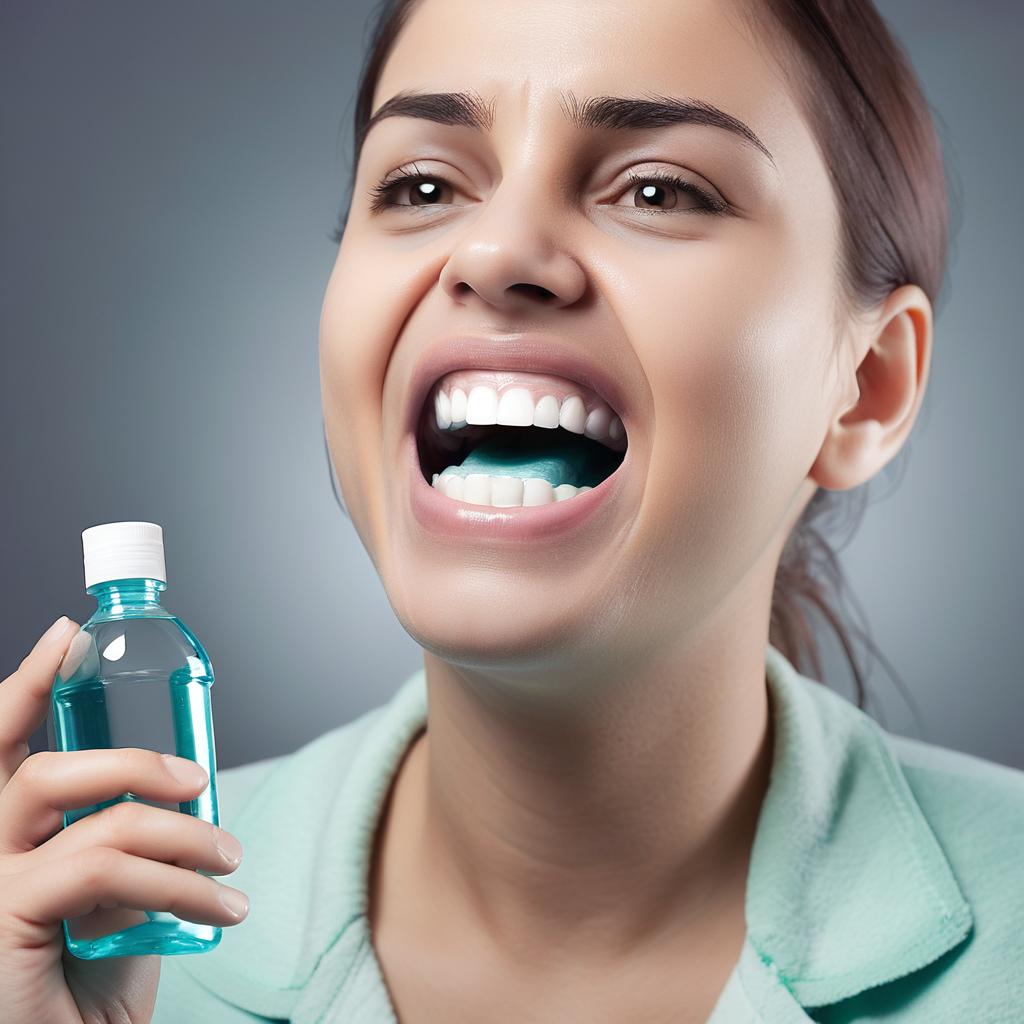Dry mouth, a condition characterized by a persistent feeling of dryness and lack of saliva in the mouth, can be a frustrating and uncomfortable experience. It can make speaking difficult, disrupt your sense of taste, and even contribute to bad breath. While there's no one-size-fits-all solution, incorporating a dry mouth wash specifically formulated for dry mouth can provide significant relief. This blog delves into the causes and effects of dry mouth, explores how mouthwash for dry mouth can manage it, and highlights the best options available.
Understanding Dry Mouth
Saliva plays a vital role in oral health. It lubricates the mouth, aids in digestion, helps prevent tooth decay by washing away food particles, and neutralises bacteria-produced acids. When saliva production decreases, various symptoms arise, collectively known as dry mouth.
Causes of Dry Mouth:
Dry mouth can be caused by various factors, including:
- Medications: Many medications, including antihistamines, antidepressants, and decongestants, can cause dry mouth as a side effect.
- Medical Conditions: Certain medical conditions, such as diabetes, Sjogren's syndrome, and autoimmune diseases, can contribute to dry mouth.
- Age: Saliva production can naturally decrease with age.
- Lifestyle Habits: Smoking, excessive alcohol consumption, and caffeine intake can worsen dry mouth symptoms.
Symptoms of Dry Mouth:
Here are some common symptoms of dry mouth:
- A persistent feeling of dryness and thirst in the mouth
- Difficulty speaking, swallowing, and tasting
- A dry, cracked tongue
- Bad breath
- Sore throat
The Role of Mouthwash in Managing Dry Mouth
Wondering does mouthwash help dry mouth? Yes!! it can offer significant relief and improve oral health. Here's how:
- Increased Moisture: Certain mouthwashes are formulated with ingredients like glycerin and xylitol, which help attract and retain moisture in the mouth, alleviating dryness. Consider the Perfora Alcohol Free Mouthwash range, which is suitable for dry mouth due to its hydrating properties.
- Reduced Burning: Alcohol-based mouthwashes can worsen dry mouth symptoms by further drying the mouth. Opt for alcohol-free mouthwashes, which are gentler and more soothing. The Perfora range is entirely alcohol-free.
- Fresher Breath: A dry mouth can contribute to bad breath. Mouthwash helps eliminate bacteria and food particles that cause bad breath, leaving your breath fresh.
Additional Considerations:
- Look for Soothing Ingredients: Choose mouthwashes containing soothing ingredients like aloe vera or chamomile, which can further lessen discomfort.
- Avoid Irritating Ingredients: Skip mouthwashes with alcohol, artificial colours, or harsh flavours, as these can irritate the already dry tissues in your mouth.
Reviewing the Best Mouthwash for Dry Mouth
With many mouthwashes available, finding the right one for dry mouth can be overwhelming. Here are some key features to look for:
- Alcohol-Free: This is crucial, as alcohol can exacerbate dryness. Perfora offers a range of practical and hydrating alcohol-free mouthwashes.
- Moisturizing Ingredients: Look for ingredients like glycerin, xylitol, or aloe vera, which help retain moisture in the mouth. The Perfora range incorporates these ingredients in their alcohol-free formulas.
- Soothing Ingredients: Chamomile or aloe vera can provide additional comfort for dry and irritated tissues.
- Fluoride: While not essential, fluoride can help strengthen tooth enamel and prevent cavities, which can concern those with dry mouth. Consider the Perfora Orange Mint Mouthwash, an alcohol-free option with fluoride for added protection.

How to Use Mouthwash for Dry Mouth Effectively
To maximize the benefits of Mouthwash for dry mouth, follow these tips:
- Use Mouthwash Throughout the Day: Use Mouthwash several times a day, especially after meals and before bed, to keep your mouth feeling moist.
- Swish Thoroughly: Swish the Mouthwash for at least 30 seconds to ensure it reaches all areas of your mouth.
- Don't Rinse with Water: Spit out the Mouthwash after swishing and avoid rinsing with water. This allows the moisturizing ingredients to coat your mouth and continue providing relief.
- Stay Hydrated: Drinking plenty of water throughout the day is essential for overall health and helps keep your mouth moist.
Takeaway Tips
- Consult Your Dentist: If you experience persistent dry mouth, consult your dentist to determine the underlying cause and discuss treatment options.
- Consider Alternative Relief Methods: Other strategies can help manage dry mouth besides Mouthwash. These include:
- Sugar-Free Lozenges or Gum: Sucking on sugar-free lozenges or chewing sugar-free gum can stimulate saliva production and keep your mouth moist.
- Artificial Saliva Sprays: These sprays provide a quick burst of moisture to alleviate dryness.
- Humidifier: Using a humidifier at night can add moisture to the air, which can help prevent your mouth from drying out while you sleep.
Living with Dry Mouth:
Dry mouth can be challenging, but with proper strategies and oral care products, you can find relief and maintain good oral health. Remember, Mouthwash is a valuable tool in managing dry mouth, but there are better options than consulting your dentist and addressing the underlying cause of dry mouth.
FAQ
1. Does Mouthwash help with dry mouth?
Yes, Mouthwash formulated specifically for dry mouth can offer significant relief. These mouthwashes typically contain ingredients like glycerin and xylitol, which attract and retain moisture and are alcohol-free to avoid further drying. The Perfora range of alcohol-free mouthwashes are all suitable for dry mouth.
2. What do dentists recommend for dry mouth?
Dentists typically recommend a combination of strategies to manage dry mouth, including using alcohol-free Mouthwash with moisturizing ingredients, sucking on sugar-free lozenges or chewing sugar-free gum, staying hydrated, and possibly using artificial saliva sprays or a humidifier at night.
3. How do you treat a parched mouth?
Your dentist may recommend additional treatments for severe dry mouth depending on the underlying cause. This could include medication adjustments or salivary stimulants.






